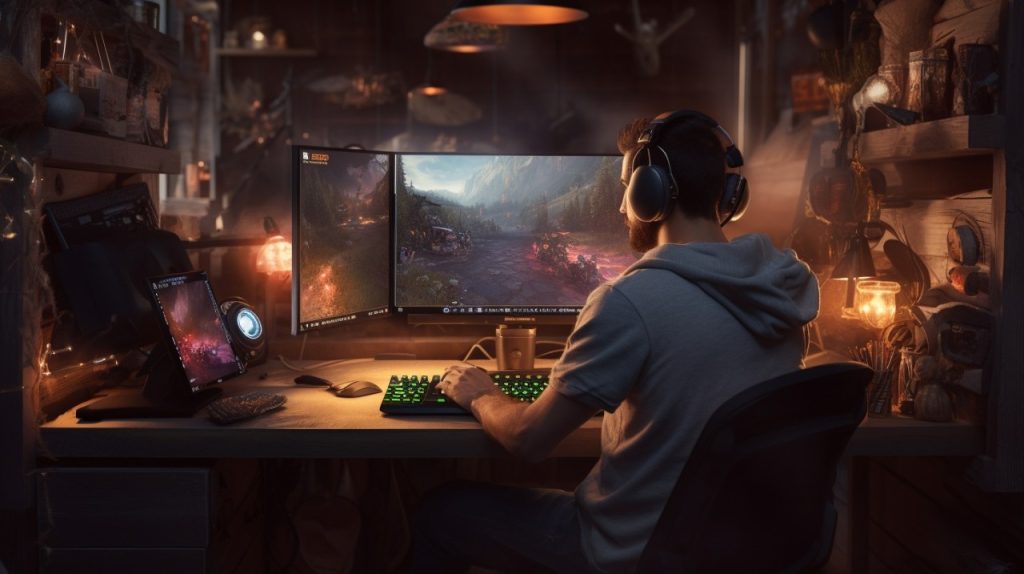A welcoming and supportive online community keeps players coming back long after the initial novelty of a game has worn off. However, fostering an ethical and inclusive culture takes continuous effort. For a game to survive in the competitive market of online entertainment, building a safe and engaged Lets Lucky Casino player community should be a top priority for developers and moderators alike.
Player Connection is Vital for Retention
The average gaming session lasts less than 60 minutes for modern online games. This is due to the never-ending stream of new titles being released and content sources competing for attention today. Simply having solid gameplay mechanics or stunning art cannot guarantee success anymore.
Developers must find ways to promote long-term dedication. Multiplayer communities that feel bonded and invested in the future of the game retain players better than isolated matchmaking systems. When designing community features, consider Maslow’s hierarchy of needs as it applies to the gaming experience:
- Physiological: Stable connections, quality streaming, regular updates
- Safety: Moderation against harassment, hacking prevention
- Love/Belonging: Guilds, clans, team objectives
- Esteem: Leaderboards, achievement systems, customization
- Self-Actualization: Player-created content, influencer events
The most successful cross-platform games continually add features that help satisfy players’ social needs.
Build in Communication with Caution
Online communication tools like general chat channels or global messaging have been staples of MMORPGs and other multiplayer genres for decades now. When integrated thoughtfully, they undoubtedly help team coordination and allow friendships to form organically.
However, public channels come with increased risks as well:
- Toxicity: Insults and verbal abuse from rude players inevitably happen when anonymity combines with competition. Even mild negativity though can undermine the welcoming atmosphere developers want to cultivate.
- Scams and Phishing: Savvy hackers pose as employees or support staff to gain account access or trick users into clicking malware links. Strict verification procedures for official staff accounts are a must.
- Predatory Behavior: Unfortunately, adults sometimes abuse game communication tools as a way to interact with minors. Strict parental controls and reporting procedures need to be in place.
Developers should consider limiting higher-risk social features like private messages or voice chat to players who meet certain requirements, such as:
- Account age
- Total hours played
- Verified contact info
- Parental consent on teen accounts
Streamlined Moderation Processes Reduce Community Friction
Even the most conscientious communities deal with rule-breaking behavior, so clear regulations paired with efficient moderation helps limit detrimental episodes.
Well-designed reporting tools allow players to notify the support team of misbehavior they encounter. Categorizing complaint types by factors like cheating, harassment, illegal content, etc. makes reviews more efficient by sending cases to specialists.
Automated temporary chat bans triggered by vulgar language reduce some basic toxic interactions without needing human oversight. Tracking the number of complaints filed against a certain player also helps identify bigger troublemakers for further restrictions if problems persist.
Setting concrete punishments for violations that escalate based on repeat offenses helps communicate expectations. For example, first-time offenders may just get a warning, while multiple infractions result in lengthier suspensions. Outlining disciplinary steps in the terms of service gives players forewarning and helps complaints appear less arbitrary or unfair.
Transparency around moderation policies demonstrates the team’s commitment to justice and provides accountability. Periodically sharing sanitized statistics also reassures community members that complaints don’t disappear into a black hole. For example, monthly updates could showcase how many disciplinary actions got taken against confirmed bullies, without naming names.
Encourage Ethical Participation through Game Design
Clever features that incentivize good sportsmanship and community building result in more positive interactions between players. Recognition for commendable behavior also helps offset perceptions that only rule breakers receive attention from moderators.
For example, at the end of battles, prompt teammates to honor opponents who played particularly well or contributed to making the match fun. Those players then gain reputation scores visible on their profiles. High ratings unlock special cosmetics or titles which show off their honorable conduct.
Small touches like showing silhouettes instead of potentially frightening avatars in safe zones reduce opportunities for harassment over appearances. Letting players tag their own streams as family-friendly spaces with restrictions on mature language also empowers creators to grow an audience.
Developers hosted events that bring different factions together toward community goals to help build camaraderie between distinct player groups. Limited-time quests that require constructive activities like healing others also guide gamers toward cooperation rather than competition temporarily.
Promoting Allies as Community Leaders
Passionate players who step up organically to serve fellow gamers make great candidates for formal roles like forum moderators or guild officers. Offering leadership pathways helps those allies access tools to be even more effective in safeguarding positive community spaces.
For example, empower top content creators with early previews or direct channels to submit suggestions to developers. Influencers often rally fan bases around issues they spotlight, allowing companies quick feedback around pain points.
Integrate Constructive Feedback from Playtest Groups
Before wide release, putting games in front of selective external test groups reveals weaknesses that may undermine community-building goals on launch. Testers should represent diverse demographics and play styles to uncover the widest range of technical and social issues.
Gather both qualitative reports around enjoyment as well quantitative metrics on usage to gauge health holistically. Watching gameplay sessions directly also lets moderators detect potential points of friction or harassment situations not called out in written feedback.
Continuously evaluating communication streams and social spaces identifies risks over time as game populations and technologies change. Even long-running successful titles need community maintenance and cultivation to prevent a rise in toxicity as players migrate to the next big release.
Player communities directly impact whether online pin up jetx games fail fast or flourish for years. While no environment with open chat functions can ever be 100% safe or positive, developers set the stage for what behaviors get rewarded. Companies hoping for longevity in the industry must go beyond basic moderation to purposeful cultivation of ethical participation.





